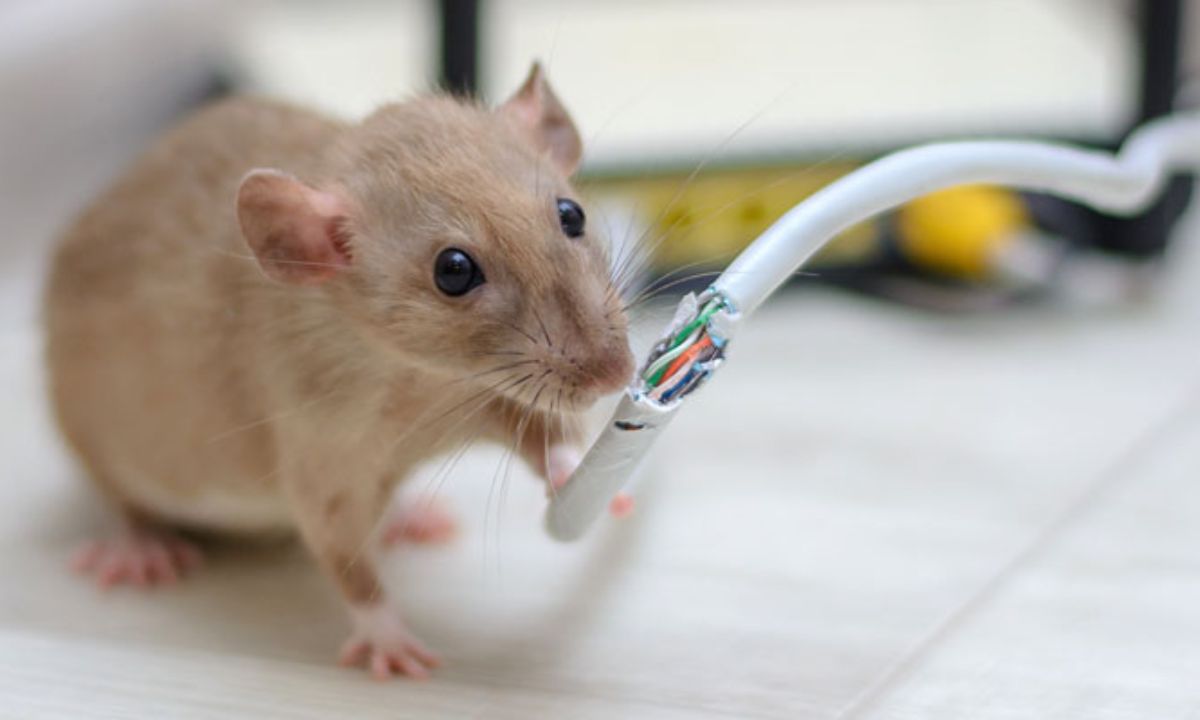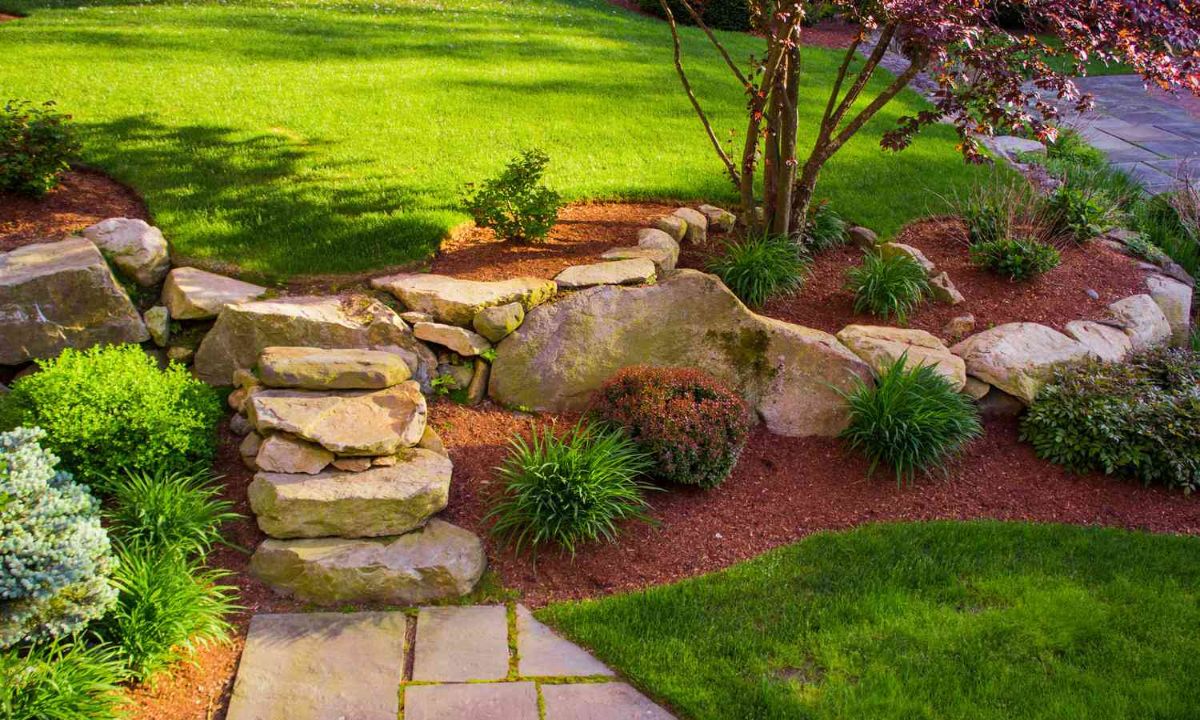Home Improvement
Holiday Table W101: Creating the Perfect Holiday Table

Introduction
Get into the holiday spirit with the ultimate holiday table! Whether you’re hosting a cozy family dinner or a grand festive party, the holiday table is the centerpiece of your celebration. It’s where memories are made, stories are shared, and delicious meals are enjoyed. But, do you need inspiration for creating a stunning holiday centerpiece? Look no further. Discover the secrets to crafting a memorable holiday table with Holiday Table W101. This guide will take you through everything you need to know to set up a holiday table that wows your guests and creates a warm, inviting atmosphere.
1. Understanding the Basics
Before diving into specific details, it’s essential to understand the basics of setting up a holiday table. These elements are the foundation of your holiday table and help establish the theme and mood for your event.
Essential Elements
Tablecloth
The tablecloth is the canvas for your holiday masterpiece. Choose a tablecloth that complements your theme, whether it’s a classic white linen, a rustic burlap, or a luxurious velvet. The right tablecloth not only protects your table but also sets the stage for the rest of your decorations.
Centerpiece
The centerpiece is the focal point of your table. It’s where your creativity can truly shine. A well-chosen centerpiece can tie together the entire theme of your holiday table and become a conversation starter. From floral arrangements to decorative bowls, the options are endless.
Place Settings
Place settings are more than just functional—they’re an opportunity to add style and elegance to your table. Consider using matching dinnerware and flatware, and don’t forget the details like napkin rings and glassware. A well-thought-out place setting can elevate the overall look of your holiday table.
Lighting
Lighting is key to setting the mood. Whether you prefer the soft glow of candlelight or the twinkle of string lights, the right lighting can make your holiday table feel warm and inviting. Lighting also helps highlight your centerpiece and place settings, adding depth and dimension to your table.
Decor
Decorations are the finishing touches that bring your holiday table to life. Think about incorporating garlands, ribbons, and other seasonal accents that match your theme. Personal touches, like family photos or heirlooms, can make your table feel even more special.
Tips for Choosing the Right Theme
Selecting a theme is the first step in designing your holiday table. Here are a few popular themes to consider:
Classic Christmas
A Classic Christmas theme is timeless and elegant. Think rich reds, deep greens, and gold accents. Incorporate traditional elements like holly, pine cones, and ornaments for a look that’s festive and familiar.
Rustic Winter Wonderland
For a more natural and cozy feel, a Rustic Winter Wonderland theme is perfect. Use earthy tones, wooden accents, and natural elements like pine branches and burlap. This theme creates a warm, inviting atmosphere that’s perfect for a holiday gathering.
Elegant Holiday Glam
If you prefer a touch of luxury, an Elegant Holiday Glam theme is the way to go. Think metallics, crystal, and lush fabrics like velvet and silk. This theme is all about sophistication and sparkle, making your holiday table feel extra special.
Fun and Festive
A Fun and Festive theme is perfect for families or casual gatherings. Use bright colors, playful patterns, and whimsical decor. Think about incorporating elements like candy canes, ornaments, and fun napkin rings to create a joyful atmosphere.
Custom Themes
Want to get creative? Consider a custom theme that reflects your personality or interests. Whether it’s a vintage-inspired look, a specific color palette, or a unique concept, a custom theme allows you to express your creativity and make your holiday table truly one-of-a-kind.
2. Creating a Stunning Centerpiece
The centerpiece is the heart of your holiday table. It’s the first thing your guests will notice, and it sets the tone for the rest of your decor. Here’s how to create a centerpiece that stands out.
DIY Centerpiece Ideas
Floral Arrangements
Flowers are a classic choice for a centerpiece. Choose seasonal blooms in colors that complement your theme. You can arrange them in a vase, a decorative bowl, or even a rustic wooden box. Add greenery like pine branches or eucalyptus for a touch of nature.
Candles and Lanterns
Candles and lanterns add warmth and ambiance to your table. Use a mix of different heights and sizes to create visual interest. Consider using scented candles with holiday fragrances like cinnamon or pine to enhance the festive atmosphere.
Decorative Bowls
A decorative bowl filled with seasonal items like pine cones, ornaments, or fruit can make a simple yet elegant centerpiece. Choose a bowl that complements your theme, whether it’s a sleek metallic bowl for a glam look or a wooden bowl for a rustic feel.
Unique Objects
Don’t be afraid to think outside the box. Consider using unique objects like a vintage sleigh, a collection of holiday figurines, or even a stack of beautifully wrapped gifts as your centerpiece. The key is to choose items that reflect your theme and add personality to your table.
Tips for Arranging a Centerpiece
Height and Balance
When arranging your centerpiece, think about height and balance. Use a mix of tall and short items to create layers and depth. Just be sure not to obstruct your guests’ view across the table.
Color Coordination
Choose colors that complement your tablecloth and place settings. If your table is mostly neutral, add a pop of color with your centerpiece. Alternatively, keep your centerpiece monochromatic for a chic, cohesive look.
Texture and Variety
Mix different textures and materials to add visual interest. For example, combine smooth glass ornaments with rough pine cones or soft flowers with shiny metallics. Variety is key to a dynamic centerpiece.
Incorporating Holiday Symbolism
Add elements of holiday symbolism to make your centerpiece feel more festive. Consider using:
- Pine Cones: Representing the winter season and the beauty of nature.
- Mistletoe: A classic holiday symbol of love and goodwill.
- Holly Berries: Adding a pop of red and a traditional Christmas touch.
- Ornaments: Bringing a festive and playful element to your table.
3. Setting the Table
Once your centerpiece is in place, it’s time to set the table. The way you arrange your table can greatly impact the overall look and feel of your holiday table.
Choosing the Perfect Tablecloth and Placemats
Your tablecloth and placemats are the foundation of your table setting. Choose a tablecloth that complements your theme, whether it’s a classic white, a festive red, or a rich gold. Placemats can add an extra layer of color and texture. Consider using placemats in a contrasting color or material to make your tableware stand out.
Selecting Dinnerware and Flatware
Choose dinnerware that complements your theme and centerpiece. For a classic look, go for white or neutral plates with gold or silver accents. If you want to add a touch of color, consider using plates with a festive pattern or bold hue. Coordinate your flatware with your dinnerware—gold flatware adds a touch of elegance, while stainless steel is timeless and versatile.
Adding a Touch of Personality with Napkins and Rings
Napkins and napkin rings are small details that can make a big impact. Choose napkins in a color or pattern that complements your tablecloth and centerpiece. Napkin rings are an opportunity to add a touch of personality—consider using rings that match your theme, like snowflakes, reindeer, or even personalized tags.
Incorporating Holiday Colors and Patterns
Holiday colors like red, green, gold, and silver are classic choices, but don’t be afraid to experiment with other colors. A blue and silver theme can evoke a winter wonderland, while a burgundy and gold palette feels warm and luxurious. Patterns like plaid, stripes, or damask can add visual interest and tie your theme together.
4. Lighting the Mood
Lighting plays a crucial role in creating the right atmosphere for your holiday table. Here’s how to use lighting to enhance your decor.
Using Ambient Lighting
Ambient lighting creates a soft, inviting glow that makes your holiday table feel warm and cozy.
String Lights
String lights are versatile and can be used in a variety of ways. Drape them across the table, weave them through your centerpiece, or hang them above the table for a magical effect.
Candles
Candles are a classic choice for holiday lighting. Use a mix of pillar candles, votives, and tealights to create a warm, flickering glow. Consider using candles in holiday scents like cinnamon, pine, or vanilla to add an extra layer of festivity.
Lanterns
Lanterns add a rustic charm to your table. Place them at different heights for a layered look, and consider using battery-operated candles inside for safety.
Creating a Warm and Inviting Atmosphere
The key to a successful holiday table is making your guests feel welcome and comfortable. Use soft lighting, warm colors, and cozy textures to create an inviting atmosphere. Consider adding a few extra touches like a soft throw draped over a chair or a small, personalized favor at each place setting.
Incorporating Holiday-Themed Lighting
Holiday-themed lighting can add an extra layer of fun to your table. Consider using string lights shaped like snowflakes, stars, or even Christmas trees. You can also use LED candles with holiday designs or colors.
5. Adding the Finishing Touches
The finishing touches are what make your holiday table truly special. These details add personality and style, making your table stand out.
Decorative Accents
Garlands
Garlands can be used in a variety of ways, from draping across the table to wrapping around the centerpiece. Choose a garland that complements your theme, whether it’s a classic pine garland, a glittery tinsel garland, or a string of beads.
Ribbons
Ribbons are a simple yet effective way to add color and texture to your table. Use them to tie around napkins, wrap around candles, or weave through your centerpiece. Choose ribbons in colors that complement your theme.
Table Runners
A table runner can add an extra layer of color and texture to your table. Choose a runner that complements your tablecloth and theme. For a more dramatic look, choose a runner with a bold pattern or rich color.
Party Favors
Party favors are a fun way to thank your guests for attending and add a personal touch to your table. Consider small, thoughtful gifts that match your theme, like homemade cookies, ornaments, or candles.
Personalizing Your Table
Family Photos
Family photos add a personal touch to your holiday table. Consider creating a small photo display at the center of the table or placing individual photos at each place setting. This is a great way to celebrate memories and make your table feel even more special.
Heirlooms
Incorporating family heirlooms into your table setting adds a sense of tradition and history. Whether it’s a set of vintage candlesticks, a special piece of china, or a treasured tablecloth, these items add sentimental value and make your holiday table feel more meaningful.
Handmade Decorations
Handmade decorations add a personal and creative touch to your table. Consider making your own centerpieces, napkin rings, or place cards. These unique, handcrafted items will make your table feel special and one-of-a-kind.
YOU MAY ALSO LIKE
Elevate Your Interiors: Why Expert Painting Services in Sydney Matter
Conclusion
Creating the perfect holiday table is all about attention to detail. From the tablecloth to the centerpiece, every element plays a role in setting the mood and making your guests feel welcome. Remember, the most important thing is to have fun and experiment with different ideas. Don’t be afraid to mix and match, add personal touches, and make your holiday table a true reflection of your style.
We hope these tips and ideas inspire you to create a memorable holiday experience. Share your table creations on social media and let others see your beautiful work. For more holiday inspiration, be sure to visit our website.
FAQs
What are the essential elements of a holiday table?
The essential elements include a tablecloth, centerpiece, place settings, lighting, and decor. Each element plays a role in setting the mood and creating a cohesive look.
How do I choose a theme for my holiday table?
Consider your personal style and the atmosphere you want to create. Popular themes include Classic Christmas, Rustic Winter Wonderland, Elegant Holiday Glam, Fun and Festive, and Custom Themes.
What are some DIY centerpiece ideas?
You can create centerpieces using floral arrangements, candles, decorative bowls, and unique objects. The key is to choose items that reflect your theme and add visual interest.
How can I create a warm and inviting atmosphere?
Use ambient lighting, warm colors, and cozy textures. Incorporating candles, string lights, and holiday-themed lighting can also enhance the mood.
What are some ways to personalize my holiday table?
You can personalize your table by incorporating family photos, heirlooms, and handmade decorations. These items add a personal touch and make your table feel special.
Home Improvement
The Environmental Impact of Plastic Furniture: Myths vs. Facts

Plastic furniture often finds itself at the center of environmental debates. While some view it as an eco-friendly alternative to traditional materials, others label it as harmful. To make informed choices, it’s essential to separate the myths from the facts surrounding the environmental impact of plastic furniture.
In this blog, we’ll explore the truth behind common claims about plastic furniture and highlight its role in sustainable living. Plus, we’ll discuss practical ways to incorporate eco-conscious plastic chairs and tables into your outdoor spaces.
Common Myths About Plastic Furniture
- Myth: Plastic Furniture Is Non-Recyclable
- Fact: Many modern plastic furniture pieces are made from recyclable materials like high-density polyethylene (HDPE). Manufacturers are increasingly adopting recycling programs to minimize waste.
- Myth: Plastic Furniture Is Always Harmful to the Environment
- Fact: Compared to wooden or metal furniture, plastic often requires fewer resources to produce. Eco-friendly options made from recycled materials significantly reduce environmental impact.
- Myth: Plastic Furniture Is Inferior in Quality
- Fact: Advances in technology have made plastic furniture highly durable and weather-resistant, debunking the notion that it’s low-quality.
- Myth: Plastic Furniture Is Unsuitable for Stylish Homes
- Fact: Modern plastic furniture comes in sleek designs and vibrant colors that can elevate the look of any indoor or outdoor space, blending style and practicality effortlessly.
The Facts: How Plastic Furniture Can Be Eco-Friendly
- Recyclable Materials: Many manufacturers now produce plastic furniture using post-consumer recycled materials. This reduces the demand for virgin plastic and promotes a circular economy.
- Longevity: Plastic furniture’s durability ensures a longer lifespan, reducing the frequency of replacements and the overall carbon footprint.
- Energy Efficiency: Producing plastic furniture typically consumes less energy compared to materials like metal or wood, especially when recycled plastics are used.
- Minimal Waste: With proper disposal and recycling initiatives, plastic furniture waste can be significantly minimized, contributing to a cleaner environment.
Italica’s Sustainable Plastic Furniture
For those seeking eco-friendly options, Italica’s plastic chairs and plastic tables are excellent choices. Designed with both style and sustainability in mind, these pieces are perfect for modern spaces.
1. Plastic Chairs
- Italica’s chairs are lightweight, durable, and made from high-quality materials. They’re weather-resistant and come in a range of colors to match any outdoor decor. These chairs are versatile enough to be used in patios, gardens, or even indoor spaces.
- Eco-Friendly Tip: Choose chairs made from recycled plastic to support sustainable practices. Consider models that are stackable for convenient storage and space-saving benefits.
2. Plastic Tables
- Italica’s tables combine functionality with aesthetic appeal. Whether you need a dining table for your patio or a side table for your garden, you’ll find versatile options that are easy to maintain. These tables are designed to withstand harsh weather conditions without compromising on style.
- Eco-Friendly Tip: Pair your table with matching recycled plastic chairs for a cohesive and sustainable setup. Look for tables with smooth surfaces and sturdy legs for maximum durability.
How to Reduce the Environmental Impact of Plastic Furniture
- Choose Recycled Materials: Opt for furniture made from post-consumer or recycled plastics to reduce waste and promote reuse. Italica’s product line offers several options in this category.
- Practice Proper Disposal: When replacing old furniture, recycle or donate it to ensure it doesn’t end up in landfills. Many local recycling centers accept plastic furniture.
- Invest in Quality: High-quality plastic furniture lasts longer, reducing the need for frequent replacements and minimizing waste. Durable options like Italica’s chairs and tables are excellent investments for this purpose.
- Support Sustainable Brands: Purchase from brands like Italica that prioritize eco-conscious manufacturing processes. Their commitment to sustainability ensures that your purchase contributes positively to the environment.
- Repurpose and Upcycle: Extend the life of your plastic furniture by repurposing it for different uses. For example, a worn-out chair can serve as a garden planter, adding charm to your outdoor space while reducing waste.
Debunking More Myths
- Myth: Plastic Furniture Looks Cheap
- Fact: Modern designs feature sleek finishes and vibrant colors, making plastic furniture stylish and elegant. Italica’s collection exemplifies how plastic furniture can enhance the aesthetics of any space.
- Myth: Plastic Furniture Is Hard to Maintain
- Fact: On the contrary, plastic furniture requires minimal maintenance. A simple wipe-down with a damp cloth keeps it clean and ready for use. Its resistance to rust and corrosion makes it ideal for outdoor settings.
- Myth: Plastic Furniture Isn’t Suitable for Outdoor Use
- Fact: High-quality plastic furniture is specifically designed to withstand extreme weather conditions, making it a practical choice for outdoor spaces.
Final Thoughts
Plastic furniture has a significant role to play in sustainable living when chosen and used responsibly. By debunking myths and focusing on the facts, we can appreciate the environmental benefits of this versatile material. Whether you’re furnishing a cozy balcony, a sprawling garden, or an indoor space, plastic furniture offers unmatched durability, affordability, and style.
Eco-conscious choices, like Italica’s plastic chairs and plastic tables, are paving the way for sustainable living. These products demonstrate that functionality and environmental responsibility can coexist beautifully.
With the right approach, plastic furniture can be a practical and environmentally conscious addition to your home. Let’s embrace the possibilities and make choices that benefit both our spaces and the planet. Choose Italica for furniture that embodies sustainability and style, proving that eco-friendly living can be both practical and elegant.
Home Improvement
How to Handle Rodent Infestations in Central Texas Homes

Rodent infestations in Central Texas homes are more common than many realize. Mice and rats can slip through tiny openings, seeking food and shelter. I know dealing with these unwelcome guests can be stressful, but it’s essential to tackle the problem efficiently. First, understand that quick action is necessary. Rodents not only damage your home, but they also carry diseases. I recommend three initial steps to address these intruders. Begin by identifying entry points. Look for holes around doors, windows, and foundations. Second, set traps in active areas. Traps help reduce the rodent population swiftly. Third, ensure food is stored in sealed containers. This reduces their food supply, making your home less appealing. If the problem persists, consider contacting professionals like Stride Pest Control. They have experience handling infestations safely. Remember, a proactive approach can save you from bigger issues in the future.
Understanding the Nature of Rodents
Rodents are adaptable creatures. They enter homes through gaps as small as a dime for mice and a quarter for rats. These pests are nocturnal and often go unnoticed until the problem escalates. They reproduce quickly, making early detection crucial. Rodents chew on wires, wood, and insulation, leading to potential fire hazards and structural damage. Moreover, they spread diseases like hantavirus and salmonella, posing health risks to your family and pets. The Centers for Disease Control and Prevention provides detailed information on the diseases rodents carry, which you can find here.
Initial Steps to Tackle Rodent Infestations
As mentioned, the first step is identifying entry points. Inspect the exterior of your home thoroughly. Seal any gaps with steel wool or caulk. Pay attention to attic vents and chimney openings. Next, place traps in places where rodent activity is evident. Common areas include behind appliances and along walls. Opt for snap traps over glue traps as they are more humane and effective. Finally, practice good sanitation to remove food sources. Secure trash bins with tight-fitting lids and clean up spills promptly.
Preventive Measures
Prevention is the best defense against rodent infestations. Here are three key measures you can take:
- Regular Inspections: Conduct monthly checks for new entry points and signs of rodent activity.
- Landscaping: Trim trees and shrubs at least three feet from your home to reduce rodent pathways.
- Food Storage: Store pet food, birdseed, and dry goods in metal or glass containers.
Professional Pest Control
When the infestation is beyond control, seeking professional help is wise. Pest control experts have the tools and knowledge to manage infestations effectively. They use methods that are safe for your family and pets. Consider contacting pest control services with a good reputation in your area. For those in Central Texas, Stride Pest Control offers reliable services tailored to your needs.
Comparison of DIY and Professional Rodent Control
| Aspect | DIY Control | Professional Control |
| Cost | Low initial cost | Higher upfront cost |
| Effectiveness | Varies, often less effective | Highly effective |
| Safety | Risk of improper use | Safe and regulated methods |
| Time | Time-consuming | Quick results |
Resources for Further Information
For more detailed guidance on rodent control, the U.S. Environmental Protection Agency provides a comprehensive resource on managing pests in your home, available here. Taking proactive measures not only protects your home but also ensures the safety and health of your family. By understanding rodent behavior and following these steps, you can effectively handle and prevent infestations.
Home Improvement
Find your Affordable Ideas for a Stunning Landscaping

All dream of a beautiful yard that will add value to the homes and become an oasis in which you can relax outdoors. Landscaping will feel like an expensive project. With plants, equipment, and a helping hand from the pros, it can soon become expensive. By using a little creativity and thinking outside the box, it is doable to landscape on a budget. That is why this article gives you a list of ideas or tips for making the exterior of your house going to be comfortable and beautiful without having to spend a lot.
Plan Before You Start
When designing landscapes, planning is the first process. Sort out your yard and figure it onto a paper as well as which landscape design locations you would like design. A well-defined idea of what you want to achieve will prevent you from making purchases that are useless and keep your efforts focused. Take measurements of the space you are working with and create a materials or plant list this plan will be used as your roadmap during the process.
Use What You Have
Take note of what you have before purchasing new plants or materials. Incorporate existing trees, shrubs, or rocks into your landscaping Melbourne design. You can save a lot of money by re-using old bricks or stones to make garden borders, ads, or walkways. You may also upcycle items such as old tubs, barrels, or even tires to make original planters for flowers and vegetables.
DIY Landscaping Projects
Employing a professional landscaper also can be quite expensive, but there are many projects that you could do yourself. You can build a garden bed, lay down a simple stone path, or plant a tree with only some basic tools and time. If you are unsure where to start in the realm of gardening but want to attempt your hand at horticulture at a later time, it usually is advisable to participate in DIY style and design. DIY not only saves money but allows you to customize your yard.
Use Gravel for Pathways
Gravel is an inexpensive way to add pathways to your yard. It is far cheaper than stone or concrete and simple to lay. The gravel path offers smooth scalloped edges and deep texture, a shaded route through the landscape. You could even stone or brick out the paths to make them look neat.
Build a Simple Deck or Patio
You can landscaping Melbourne with a simple deck or patio can be a good area for outdoor dining or relaxation. Expensive materials, such as concrete pavers or even salvaged wood are not required. Because it does not have to be completed all in one go, this DIY project allows you to save up for the materials over time and will leave you with a space that is effective and great looking.
Install Solar Lighting
Outdoor lighting does not have to be overpriced. If you have a yard and want to see your way somehow, solar lights are the best value-for-money lighting you can use that also helps reduce waste. Solar lights are available in many retail outlets, some of which do not even have to be wired up at all. Line your pathways with them or set them around flower beds and patios to add a warm glow in the evening.
Vertical Gardens Add Height
Ideal for those working with limited space or hoping to get creative with how they present their plants. Plant climbing plants like vines, beans, or cucumbers for use with a trellis, fence, or wall. Living walls and vertical gardens are an inexpensive way to get a burst of green without losing the floor space. Additionally, they add more depth and color to your yard.
Gardening on a Budget doesn’t mean that satisfying with the less attractiveness and style. Budget-friendly ideas will create a beautiful and relaxing outdoor space that you can enjoy for years.
-

 Home Improvement6 months ago
Home Improvement6 months agoEssential Drain Cleaning Tips for Brampton Residents
-

 Fashion11 months ago
Fashion11 months agoAttractive Beach Dresses: Elevate Your Look with These Ideas
-

 Entertainment10 months ago
Entertainment10 months agoNetnaija: Your One-Stop Shop for Free Movies in Africa
-

 Pets10 months ago
Pets10 months agoPawsitively Perfect: The Types of Dog Harness Bundle for Your Furry Friend
-

 News10 months ago
News10 months agoWhat Are the Biggest Challenges in Marine Construction Projects in Australia?
-

 Health11 months ago
Health11 months agoUnderstanding Ftmç: Gender-Affirming Surgery
-

 Business11 months ago
Business11 months agoHow Professional Concrete Cleaning Wins Repeat Business
-

 Entertainment12 months ago
Entertainment12 months agoUnlocking Cinematic Pleasures: A Comprehensive Look at Rebahin, the Free Movie Streaming Haven
















